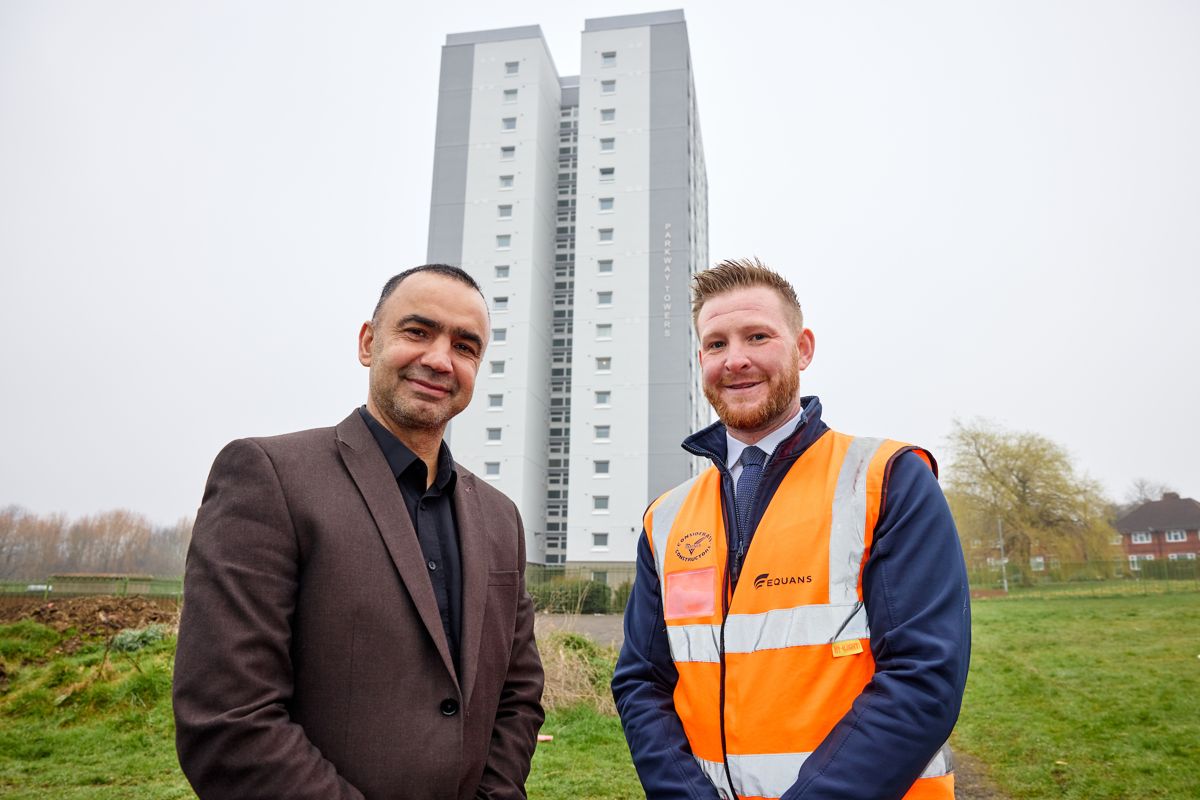The £25m energy efficiency scheme in Leeds has brought warmer homes, lower energy bills, and reduced carbon emissions to residents of council flats. Through measures like reroofing, new insulation, and improved ventilation, this project has resulted in a one-third drop in CO2 emissions and significant cost savings for households.
What impact has the £25m energy efficiency scheme had on Leeds residents?
The £25m energy efficiency scheme in Leeds has provided residents with warmer homes, reduced energy bills, and decreased carbon emissions. This transformative project targets council flats, enhancing their energy efficiency through reroofing, new insulation, and better ventilation, leading to a one-third drop in CO2 emissions and significant cost savings for households.
Transforming Leeds: Energy Efficiency in Action
As the world grapples with climate change and energy conservation becomes paramount, Leeds has embarked on a transformative journey. A £25m energy efficiency scheme is reshaping the lives of many residents, providing them with not only a warmer home but also a more sustainable future. A collaboration between Leeds City Council and energy and regeneration specialist Equans has sparked a major upgrade to several council flats, focused on carbon reduction and cost savings.
The work commenced in late 2022 and targeted seven tower blocks. The project encompasses Parkway Court, Parkway Grange, and Parkway Towers in Seacroft, as well as Lovell Park Grange, Lovell Park Heights, and Lovell Park Towers in Little London. With six of the blocks already reaping the benefits, residents are witnessing a dramatic transformation. Measures such as reroofing, new external wall insulation, and enhanced ventilation systems not only bolster the building’s energy efficiency but also underpin a tangible enhancement in residents’ quality of life.
These improvements, while reducing the energy required to heat the flats, will also ease financial pressures on the 600 households across the blocks. Fuel bills are anticipated to decrease substantially, providing much-needed economic relief. Furthermore, the CO2 emissions attributable to an average flat are expected to plummet by approximately one-third. The aesthetic upgrade is another positive outcome, with refreshed rendering and fittings improving the external visage of the buildings.
The People’s Perspective: Voices from the Community
During a significant visit to one of the refurbished blocks in Seacroft, Councillor Mohammed Rafique engaged with the community and project team to witness first-hand the improvements at Parkway Towers. Conversations with residents revealed the palpable impact of the scheme on their lives, highlighting the human aspect behind the statistics. Councillor Rafique, executive member for climate, energy, environment and green space, remarked on the importance of reducing Leeds’ carbon footprint through fair measures that elevate living standards across local communities.
“These flats in Seacroft, Little London, and West Park symbolize our commitment to a sustainable future,” Councillor Rafique noted. “The significant drop in emissions and energy bills is a direct result of this initiative.” He also underscored the collaborative effort with Equans as a critical factor moving the project forward.
Councillor Jess Lennox, responsible for housing, echoed this sentiment. Her focus is on delivering quality social housing which can transform lives. “The scheme is more than a success story,” Councillor Lennox said. “It’s a beacon of hope, particularly for those affected by fuel poverty, showing that their energy bills can be reduced.”
A Brighter Future: Ongoing Upgrades and District Heating Connections
The scheme forms a piece of a larger £100m puzzle of work being undertaken by Leeds City Council, aiming to uplift the city’s energy profile and tackle fuel poverty head-on. The seventh block, Moor Grange Court in West Park, is on deck for completion in the coming months. The project’s funding structure is as much a testament to the importance of this work as the outcomes, with £9.6m sourced from the government’s Social Housing Decarbonisation Fund and the balance funded by the council.
An additional boon for residents, particularly those in Lovell Park Grange, Lovell Park Heights, and Lovell Park Towers, is the prospect of connecting to Leeds PIPES district heating network. This innovative system recovers heat from non-recyclable waste, delivering warmth and hot water to residential and commercial buildings. Partnered with Vital Energi, Leeds PIPES is set to help customers save nearly half a million pounds in energy costs.
The collaborative spirit extends beyond local government to the private sector. Sean Corcoran, the regional director at Equans, has highlighted the scheme’s lasting impact. “We’re not just refurbishing buildings; we’re enhancing lives,” said Corcoran. “At a time when living costs are soaring, these improvements are a lifeline for many.” He emphasized the project’s role in reducing the UK’s carbon emissions and praised the partnership with the council in striving for a greener Leeds.
Editor’s Note: Equans’ Role in a Sustainable Future
In the quest for net zero, Equans has established itself as a pivotal force in the UK and Ireland. Its commitment to technical services, facilities management, regeneration, and energy services – particularly in smart buildings and green mobility – has positioned the company as a leader in the transition to sustainable energy. With the global workforce of nearly 100,000 employees across more than 50 countries and part of the Bouygues group, Equans’ work in Leeds exemplifies its broader mission to foster a sustainable and energy-efficient world.
- The £25m energy efficiency scheme in Leeds has brought warmer homes, lower energy bills, and reduced carbon emissions to residents of council flats.
- Measures like reroofing, new insulation, and improved ventilation have led to a one-third drop in CO2 emissions and significant cost savings for households.
- The project has targeted seven tower blocks in Leeds, with six already reaping the benefits of enhanced energy efficiency.
- Residents are experiencing a tangible improvement in their quality of life due to the scheme, with financial pressures easing and CO2 emissions decreasing.
- Leeds City Council’s collaboration with Equans has been crucial in delivering these positive outcomes for the community.
